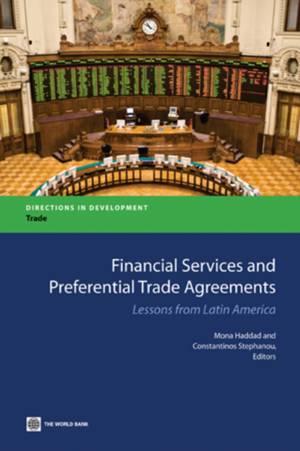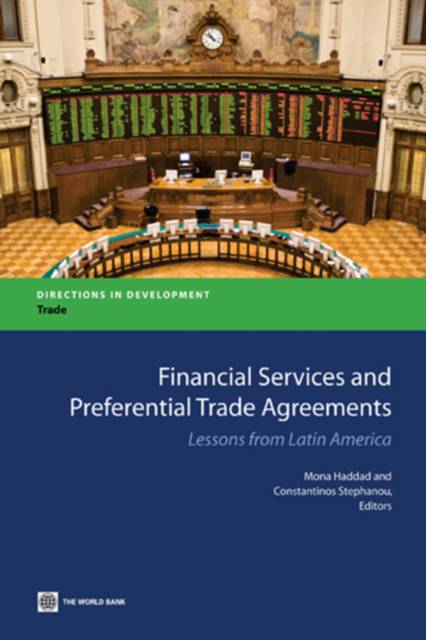
Bedankt voor het vertrouwen het afgelopen jaar! Om jou te bedanken bieden we GRATIS verzending (in België) aan op alles gedurende de hele maand januari.
- Afhalen na 1 uur in een winkel met voorraad
- In januari gratis thuislevering in België
- Ruim aanbod met 7 miljoen producten
Bedankt voor het vertrouwen het afgelopen jaar! Om jou te bedanken bieden we GRATIS verzending (in België) aan op alles gedurende de hele maand januari.
- Afhalen na 1 uur in een winkel met voorraad
- In januari gratis thuislevering in België
- Ruim aanbod met 7 miljoen producten
Zoeken
Financial Services and Preferential Trade Agreements
Lessons from Latin America
€ 67,95
+ 135 punten
Omschrijving
This book fills a large gap in the literature on trade in services. It focuses on the dynamics of trade and investment liberalization in a sector of considerable technical and regulatory complexity--financial services. This volume chronicles the recent experiences of governments in Latin America that have successfully completed financial services negotiations through preferential trade agreements. One of the unique features of this book is the three in-depth country case studies--Chile, Colombia, and Costa Rica--all written by trade experts who led the negotiations of their respective countries in financial services. The authors offer analytical insights into the substantive content of the legal provisions governing financial market opening and the way such provisions have evolved over time and across negotiating settings. The studies describe how each of the three governments organized the conduct of negotiations in the sector, the extent of preparatory work undertaken before and during negotiations, and the negotiating road maps that were put in place to guide negotiators. Additional chapters complement the case studies by examining the evolving architecture of trade and investment disciplines in financial services and how best to prepare for negotiations in this sector. 'Financial Services and Preferential Trade Agreements' aims to provide practical lessons for policy makers, trade experts, and negotiators in developing countries who are involved in negotiating trade in financial services in the context of regional trade agreements. Academics and development practitioners interested in trade negotiations will also find the information valuable.
Specificaties
Betrokkenen
- Uitgeverij:
Inhoud
- Aantal bladzijden:
- 344
- Taal:
- Engels
- Reeks:
Eigenschappen
- Productcode (EAN):
- 9780821382738
- Verschijningsdatum:
- 9/06/2010
- Uitvoering:
- Paperback
- Formaat:
- Trade paperback (VS)
- Afmetingen:
- 152 mm x 229 mm
- Gewicht:
- 462 g

Alleen bij Standaard Boekhandel
+ 135 punten op je klantenkaart van Standaard Boekhandel
Beoordelingen
We publiceren alleen reviews die voldoen aan de voorwaarden voor reviews. Bekijk onze voorwaarden voor reviews.








